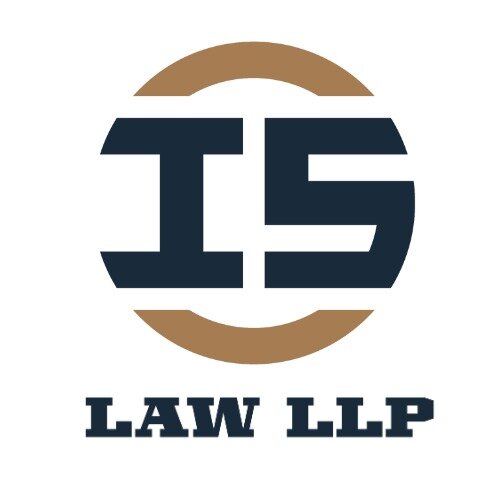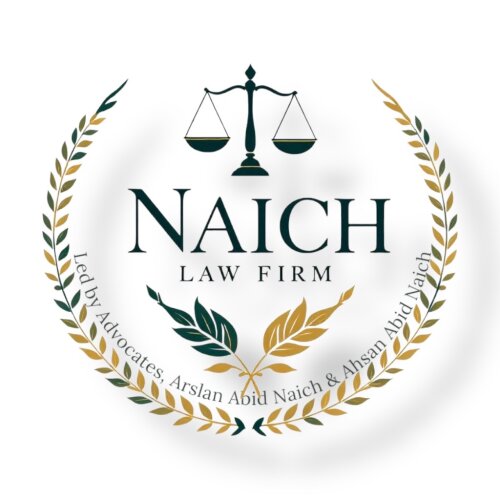Best Nursing Home Abuse Lawyers in Pakistan
Share your needs with us, get contacted by law firms.
Free. Takes 2 min.
Or refine your search by selecting a city:
List of the best lawyers in Pakistan
About Nursing Home Abuse Law in Pakistan
Nursing Home Abuse in Pakistan is an increasingly recognized issue as awareness about elder rights and healthcare standards grows. Nursing homes and elder care facilities are expected to provide safe environments, yet instances of physical, emotional, financial, and medical neglect continue to occur. While Pakistan’s elder care system is still developing, legal frameworks are being strengthened to protect the rights and dignity of nursing home residents, addressing abuse and neglect issues through both civil and criminal legal channels.
Why You May Need a Lawyer
If you suspect nursing home abuse or neglect, seeking legal assistance can be crucial. Common situations requiring legal help include:
- Physical or emotional abuse leading to harm or distress.
- Neglect in medical care, resulting in serious health consequences.
- Financial exploitation or mishandling of a resident’s money or assets.
- Violation of resident’s rights, including privacy or mobility restrictions.
- Complexity in filing complaints or obtaining evidence against facilities.
- Assistance in navigating local laws and regulations related to elder care.
Local Laws Overview
The legal landscape for Nursing Home Abuse in Pakistan falls under several key laws and regulations:
- The Pakistan Penal Code (PPC), which provides a basis for criminal charges for abuse and neglect.
- The Senior Citizens Act implemented in some provinces like Sindh and Khyber Pakhtunkhwa, outlining protections for elders.
- Specific health regulations managed by provincial healthcare commissions to monitor and regulate nursing homes.
- Consumer protection laws, which can be invoked in cases of fraudulent or substandard service provision by nursing homes.
Frequently Asked Questions
What constitutes nursing home abuse under Pakistani law?
Nursing home abuse includes physical harm, emotional mistreatment, neglect of medical care, financial exploitation, and violation of basic rights such as privacy and dignity.
How can I report suspected nursing home abuse?
Reports can be made to provincial healthcare commissions, local police, or through direct legal action with the assistance of an attorney.
What evidence is needed to prove nursing home abuse?
Evidence may include medical records, eyewitness testimonies, financial documents, abuse photographs, or surveillance footage.
Can a victim sue a nursing home directly?
Yes, victims or their representatives can file a lawsuit against the nursing home for damages resulting from abuse or neglect.
Are there time limits for filing a nursing home abuse case?
The time limit, known as the statute of limitations, depends on the nature of the abuse and local procedural laws, commonly ranging from 2 to 3 years.
What are the potential outcomes of a nursing home abuse lawsuit?
Possible outcomes include compensation for damages, operational fines against the facility, or criminal charges against perpetrators.
Are nursing homes in Pakistan strictly regulated?
Regulation is increasing, with provincial healthcare commissions taking a more active role, though enforcement levels vary.
What should I do if I suspect elder financial abuse?
Gather evidence, alert the nursing home administration, report to authorities, and consult a lawyer specializing in elder law.
Is mediation a viable option for resolving abuse claims?
Mediation may be suitable for some cases, providing a less adversarial means of reaching settlements, but severe cases often require legal proceedings.
Can non-family members report nursing home abuse?
Yes, any concerned individual, including friends or community members, can report suspected abuse to the relevant authorities.
Additional Resources
If you need further information or assistance regarding Nursing Home Abuse, consider contacting the following:
- Provincial Healthcare Commissions in your area.
- The Pakistan Senior Citizens Welfare Organization.
- Legal Aid Offices or non-governmental organizations focused on human rights.
Next Steps
If you need legal assistance for Nursing Home Abuse in Pakistan, consider these steps:
- Document any and all evidence related to the abuse you suspect.
- Contact a lawyer specializing in elder law or civil rights as soon as possible.
- Report your concerns to the relevant authorities for an official inquiry.
- Ensure the safety and well-being of the affected individual during ongoing investigations.
Taking prompt and informed action is crucial in addressing Nursing Home Abuse and ensuring justice for the victims.
Lawzana helps you find the best lawyers and law firms in Pakistan through a curated and pre-screened list of qualified legal professionals. Our platform offers rankings and detailed profiles of attorneys and law firms, allowing you to compare based on practice areas, including Nursing Home Abuse, experience, and client feedback.
Each profile includes a description of the firm's areas of practice, client reviews, team members and partners, year of establishment, spoken languages, office locations, contact information, social media presence, and any published articles or resources. Most firms on our platform speak English and are experienced in both local and international legal matters.
Get a quote from top-rated law firms in Pakistan — quickly, securely, and without unnecessary hassle.
Disclaimer:
The information provided on this page is for general informational purposes only and does not constitute legal advice. While we strive to ensure the accuracy and relevance of the content, legal information may change over time, and interpretations of the law can vary. You should always consult with a qualified legal professional for advice specific to your situation.
We disclaim all liability for actions taken or not taken based on the content of this page. If you believe any information is incorrect or outdated, please contact us, and we will review and update it where appropriate.
Browse nursing home abuse law firms by city in Pakistan
Refine your search by selecting a city.














